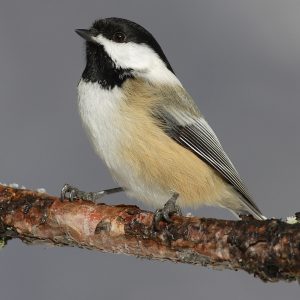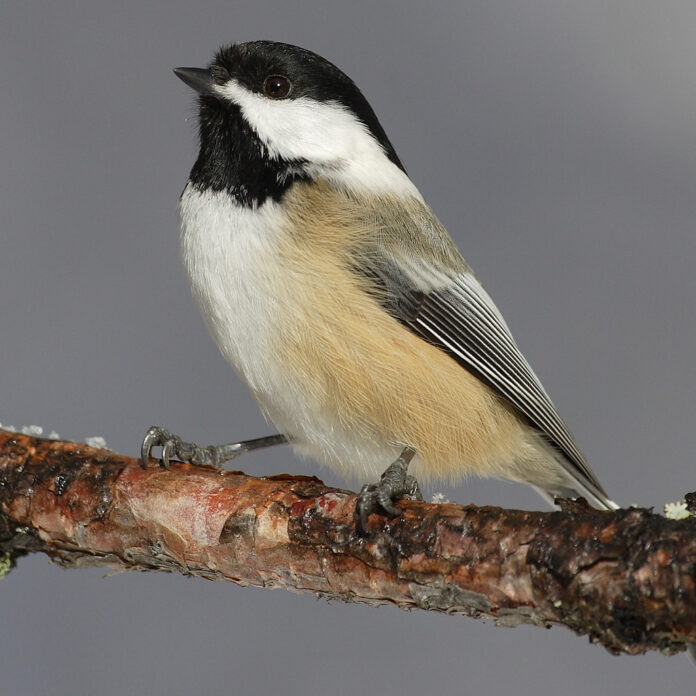BY HARRY WEEKES

On the first Saturday of the new year, I heard the first birdsong since the fall. A male chickadee perched high in the willows to my right delivered his identifying two-note “fee-bee” call. There was both clarity and also urgency in his voice. Urgency is the wrong word. It was insistency combined with what felt like a kind of wonder. As in, “I can do this?!” A remembrance that in the repertoire of ways to interact with the world, he could sing.
The bird sang repeatedly and clearly enough that I found him, 75 yards away, fluffed up, beak open, calling in the early morning light. As I watched, another bird flitted along, and landed beneath him. Just as quickly as they appeared, they were away. He didn’t call again.
Since learning about Carl Linneaus’s Flower Garden Clock, I have been thinking about time and, by extension, all of the things we can learn from the natural world if we pay close attention.
After my encounter with the chickadee, I stood by a pond for 20 minutes until a group of Barrow’s goldeneyes (nine of them) ran across the water, lifted into the air, then made two spiraling circles before gaining enough altitude to fly off toward the west. Their wings whistled as specifically and loudly as the chickadee’s call.
Next, the mergansers, led by two males who had shown up since the last time I was here, slapped their ways across the pond in the opposite direction, did one big loop and also took off to the west. Their wings whistled, but quite differently—more hushed and less frequently.
As I headed back up the canyon, I could hear small groups of goldeneyes take to the air, just by the whistles. I wondered, Is this a clock of sorts? If I lived right here, would I be able to tell it’s a little after 8:00 a.m. based on the fact that the ducks are moving? Would I be able to tell it is early January because that’s when I hear the chickadees? Said more generally, would I know the days are getting longer because the chickadees never call until after the solstice?
There is an imprecision to natural clocks that reflects the complexity of any multivariate system. More accurately, there is a variability with which humans seem uncomfortable. Maybe the ducks fly because of a specific amount of light. Maybe it’s snowing hard, so the goldeneyes stay on the pond all day instead of going out. Maybe the light, temperature, and barometric pressure are why mergansers move. Maybe they just fly when they want to. Or, the worst, in any kind of timepiece, maybe they fly because they are scared of me. In other words, my very presence changes the system. Can you imagine if looking at your watch changed what time it was?
There are important things to be learned from the natural world. When those birds took flight, so did curiosity. Could I tell species of ducks by the whistle of their wings? Are they heading toward the river because that’s where they hunt during the day? Do the heavier ducks stay behind or similarly leave, but on a later schedule?
There are the subtler things, too: that variability becomes precision over time, which requires patience; that certain things don’t experience the world linearly at all, but rather in small and large cycles; and perhaps the biggest to me, that there is so much we don’t and will never know even in the simplest things.
It would be cool if all of our clocks taught us such humility.
Harry Weekes is the founder and head of school at The Sage School in Hailey. This is his 48th year in the Wood River Valley, where he lives with Hilary and two of their three baby adults—Penelope and Simon. The other member of the flock, Georgia, is currently fledging at Davidson College in North Carolina.



